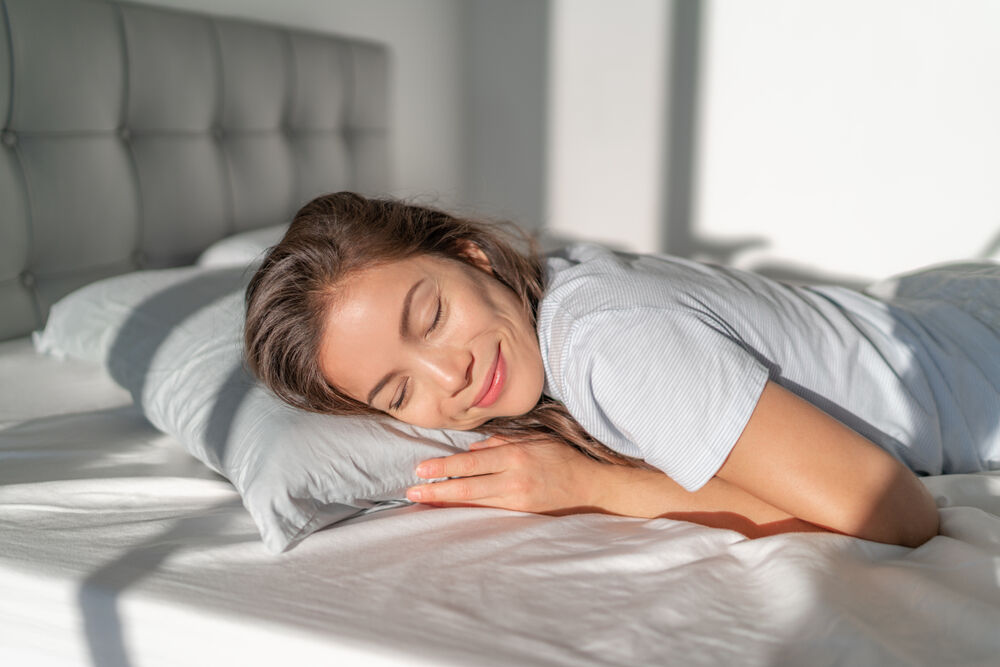We've all heard the saying, "You are what you eat." But have you ever considered, "You are how you sleep?" Surprisingly, the way we snuggle up under the covers each night isn't just about comfort; it's a mirror to our personalities and an indicator of our health. So, are you curious about what your sleeping position might be revealing about you? Dive in with us!
Common Sleeping Positions
Side Sleeping
The majority of people find solace sleeping on their side. It's a fetal position that many find comforting. Some benefits of sleeping this way include:
- Enhances waste removal from the brain
- Reduces heartburn and acid reflux
- Minimizes snoring
While sleeping on one’s side is a fairly common sleeping position, there are recommendations on how to best do it:
- Keep a pillow between your knees to ensure spine alignment.
- Ensure your head and neck are aligned with your spine. No high or low pillows!
What is also similarly surprising is how there are also wrong ways to go about it:
- Sleeping with an arm under your head can cause numbness.
- Curling up too tightly can restrict deep breathing and result in stiffness.
Back Sleeping
The Regal Posture! Back sleeping is favored for spinal health but has its detractors because of snoring. There are, of course, reasons why it is also preferred by many:
- Prevents facial wrinkles and skin breakouts
- Supports spine and neck health
Like anything we do that involves our bodies, there are both significant health advantages and potential risks to sleeping on our bodies:
- Good for the spine and neck, given the right pillow
- Risk of snoring and sleep apnea
Tips for Optimal Alignment:
- Use a pillow that supports the neck’s natural curve.
- Don’t use a pillow that's too high or stiff.
Stomach Sleeping
A controversial choice in the sleep community due to its potential health implications. Some of the challenges and potential health risks include:
- This can lead to lower back pain
- Strains the neck when turned to the side
There are, however, some supposed adjustments that those who prefer this position can make:
- Use a very thin pillow or none at all.
- Regularly switch the side your face is turned to.
Sleeping Positions and Specific Health Concerns
The importance of sleep can't be stressed enough. Your sleeping position can influence various health aspects.
For Back Pain:
- Side sleeping with a cushion between the knees can ease pain.
- Back sleeping with a pillow under the knees can also provide relief.
- Stomach sleeping is generally not recommended, as it can put a strain on the lower back.
- If you do sleep on your stomach, place a pillow under your hips to help maintain a neutral spine curve.
- Use a medium-firm mattress that provides good support for your back.
For Neck Pain:
- Ensure proper pillow height, whether side or back sleeping.
- Regularly rotate and fluff pillows to maintain support.
- Consider using a memory foam pillow, which can conform to the shape of your head and neck to provide better support.
- If you wake up with neck pain, try sleeping with a rolled-up towel under your neck.
To Reduce Snoring:
- Side sleeping is often recommended. It can help to keep your airway open, which can reduce snoring.
- Elevating your head slightly can also help to reduce snoring.
- Avoid using alcohol or sleeping pills before bed, as these can relax the muscles in your throat and make snoring worse.
For Pregnancy
- Side sleeping, particularly on the left, is recommended for pregnant women.
- This helps to improve circulation to the fetus and reduce the risk of pregnancy complications.
- Use a full-body pillow or other pillows to support your belly, back, and knees.
Additional Health Concerns:
- Acid reflux: Sleeping on your back can make acid reflux worse. If you have acid reflux, try sleeping on your left side or elevating your head and chest slightly.
- Heartburn: Sleeping on your left side can help to reduce heartburn.
- Sleep apnea: Sleep apnea is a condition in which breathing is interrupted during sleep. Side sleeping can help to improve breathing and reduce the symptoms of sleep apnea.
It is important to note that everyone is different and what works for one person may not work for another. When experiencing any health problems, it is best to speak with a health specialist about what sleeping position is ideal.
Role of Pillows and Mattresses in Sleeping Postures
Beyond sleeping positions, where you're resting your head and body is also crucial. The right pillow and mattress can help maintain proper spinal alignment, reduce pressure points, and improve sleep quality.
How Pillow Positions Can Affect Sleep Alignment
The right pillow height and firmness can help keep your head and neck in alignment with your spine. A pillow that is too high or too low can strain your neck muscles and lead to pain and stiffness. Memory foam pillows are a good option for many people, as they conform to the shape of your head and neck to provide consistent support.
The position of your pillow can have a big impact on your sleep alignment. If your pillow is too high or too low, it can put your neck in an unnatural position and strain your neck muscles. This can lead to pain and stiffness in your neck, shoulders, and upper back.
To maintain proper sleep alignment, your pillow should support the natural curve of your neck. This means that your head and neck should be in a neutral position, not tilted up or down. When you are lying on your back, your pillow should fill the space between your neck and the mattress. When you are lying on your side, your pillow should be thick enough to keep your head and neck in alignment with your spine.
If you are not sure what height and firmness of the pillow is right for you, try experimenting with different pillows until you find one that feels comfortable and supportive.
Choosing the Right Mattress for Your Preferred Sleep Position
Side sleepers benefit from medium to soft mattresses that cushion the shoulders and hips. Back sleepers require medium to firm mattresses that provide spine support. Stomach sleepers need a firmer mattress to prevent unnatural curving of the spine.
The type of mattress you choose can also have a big impact on your sleep alignment. If your mattress is too soft, it may not provide enough support for your spine, which can lead to pain and stiffness. If your mattress is too firm, it may put too much pressure on your pressure points, which can also lead to pain and discomfort.
To choose the right mattress for your sleeping position, it is important to consider your body weight and the natural curvature of your spine. Side sleepers and back sleepers of average weight typically do well on medium to firm mattresses. Stomach sleepers and back sleepers who are overweight or obese may need a firmer mattress. Side sleepers and back sleepers who are underweight may need a softer mattress.
It is also important to try out different mattresses before you buy one. Lie on each mattress for several minutes in your preferred sleeping position to see how it feels. Choose a mattress, including a high or low profile mattress foundation, that provides good support for your spine and keeps your pressure points comfortable.
Your sleep posture says volumes, not just about your personality, but also about your health. Every twist, curl, and stretch can impact your well-being. So, the next time you drift off, remember the insights you've gained today.
For those looking to elevate their sleeping experience, Mancini's Sleepworld is your destination for mattresses that support every sleep style. After all, achieving good sleep posture with the best mattress? That's a dream come true!
Remember, a good night's sleep isn't just about duration but also quality. While sleeping positions are vital, a comfortable and supportive mattress from trusted providers like Mancini's Sleepworld is the bedrock of better sleep and improved health conditions. Your body, mind, and mood will thank you for it!

